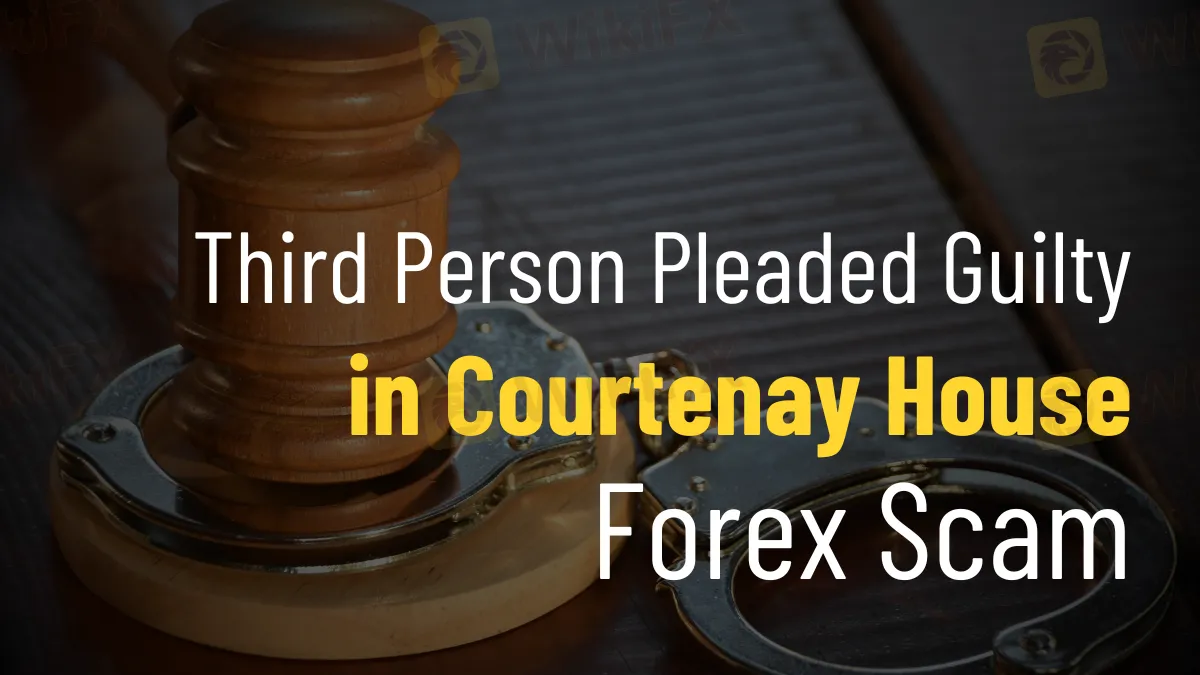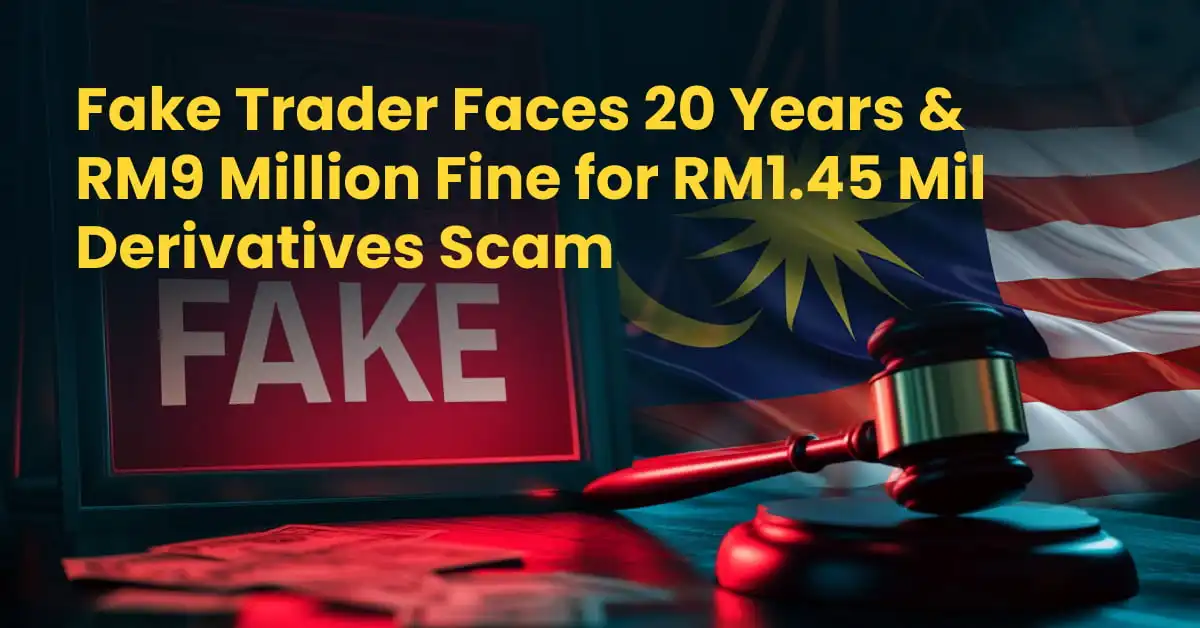简体中文
繁體中文
English
Pусский
日本語
ภาษาไทย
Tiếng Việt
Bahasa Indonesia
Español
हिन्दी
Filippiiniläinen
Français
Deutsch
Português
Türkçe
한국어
العربية
Third Person Pleaded Guilty in Courtenay House Forex Scam
Abstract:David Sipina pleads guilty to Courtenay House Forex scam charges, including dealing with illicit profits over $1 million and operating without a license.

David Sipina, from Croydon, NSW, has pleaded guilty in court regarding the Courtenay House Forex scam. Two of the accusations charged against him include dealing with illicit profits exceeding $1 million and operating a financial services firm without the necessary license.
Sipina went to Downing Center Local Court on March 19, 2024, to appear in court. He said that he did these things from June 2015 to April 2017. His job was to get new partners and spread the word about the business. He did not know that Courtenay House was a hoax. He continued to earn commissions for promoting Courtenay House Investments even though they lacked the necessary license.
In Sydney District Court on April 19, 2024, he will first show up to get his sentence. His guilty plea resulted in the dismissal of another case.
Courtenay House promised investors strong returns on their futures and forex trades. For the most part, though, it used money from new owners to pay back money from old investors. A Ponzi scheme is what we call it. Trading barely touched the $180 million that 585 individuals invested.
Following an investigation by ASIC, the Commonwealth Director of Public Prosecutions is now dealing with this case. The third defendant in this case to admit guilt is Sipina.
Former Courtenay House contractor Athan Papoulias served a two-year rigorous prison term. He must also complete 120 hours of community service.
The previous director of Courtenay House, Tony Iervasi, also acknowledged overseeing the Ponzi scam. April 2024 will see his sentence in the NSW Supreme Court.
February 21, 2023, was the day of the initial charges filed against Sipina. Offenses involving the handling of illicit proceeds carry penalties such as fines, imprisonment, or both, with a maximum term of 25 years.
In May 2017, the Supreme Court of New South Wales ordered the liquidation of the Courtenay House corporations. At ASIC's request, the court had already imposed limits on the financial activities of Courtenay House, its directors, and affiliates to protect investor funds and prevent further fund collection.

Disclaimer:
The views in this article only represent the author's personal views, and do not constitute investment advice on this platform. This platform does not guarantee the accuracy, completeness and timeliness of the information in the article, and will not be liable for any loss caused by the use of or reliance on the information in the article.
Read more

Malaysian Finfluencers Could Face RM10 Million Fine or 10 Years in Prison!
A new regulatory measure by the Securities Commission Malaysia (SC) is set to change the country’s online trading and financial influencer landscape. Starting 1 November 2025, any trader or influencer caught promoting an unlicensed broker could face a fine of up to RM10 million, a prison sentence of up to 10 years, or both.

Juno Markets: A Closer Look at Its Licenses
When selecting a broker, understanding its regulatory standing is an important part of assessing overall reliability. For traders seeking to protect their capital, ensuring that a platform operates under recognised and stringent oversight can make all the difference. Keep reading to learn more about Juno Markets and its licenses.

Fake Trader Faces 20 Years & RM9 Million Fine for RM1.45 Mil Derivatives Scam
A Malaysian man who posed as a ‘licensed’ futures trader has been handed a 20-year prison sentence and a RM9 million fine after admitting to running a fraudulent derivatives investment scam.

Complaints Against Weltrade | Traders Can’t Get Their Money Back
Opening a trading account and watching your capital grow can feel exciting and full of promise until the moment you realise you cannot get your money back. That’s when the dream turns into a nightmare. Recent complaints submitted to WikiFX reveal an unsettling pattern seen at Weltrade where deposits vanish, withdrawals stall for days or even months, and support channels lead nowhere.
WikiFX Broker
Latest News
What Is Indices in Forex? A Beginner’s Guide to Trading Forex Indices
FBI Issues Urgent Warning on Crypto Recovery Scams
Robinhood Moves Toward MENA Expansion with Dubai DFSA License Application
How to Use Retracement in Trading
CySEC warns the public against 17 investment websites
Fake Trader Faces 20 Years & RM9 Million Fine for RM1.45 Mil Derivatives Scam
Complaints Against Weltrade | Traders Can’t Get Their Money Back
WikiFX Community Event Series, “Thailand Elites’ View”
Juno Markets: A Closer Look at Its Licenses
Germany's Industrial Core Is Collapsing Under The US Trade Deal And The Green Agenda
Currency Calculator


